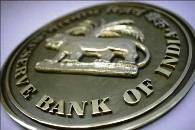 | « Back to article | Print this article |
 The FM's proposal on new banks and a Financial Stability and Development Council could spark tension with RBI, says A K Bhattacharya.
The FM's proposal on new banks and a Financial Stability and Development Council could spark tension with RBI, says A K Bhattacharya.
Are relations between North Block and Mint Road likely to get a little tense? This is a fair question to ask after one takes a quick look at Finance Minister Pranab Mukherjee's Budget presented last Friday.
Not that there has never been any tension between North Block, headquarters of the finance ministry, and Mint Road, where the head office of the Reserve Bank of India (RBI) is located. Indeed, the apex bank and the finance ministry have often found themselves quietly wrestling with each other over jurisdiction and turf-control issues.
In the late 1980s, the finance ministry insisted that RBI grant permission to the opening of a foreign bank whose commitment to integrity and governance norms was in doubt. The central bank was in two minds, but the finance ministry was keen that the central bank fell in line.
An unhappy compromise followed to break the deadlock. It would be of some interest to know that the protagonists involved in that compromise are now members of the current United Progressive Alliance government.
A couple of years ago, the finance ministry had sent out signals to RBI that it should consider relaxing the monetary policy. The central bank was in no mood to listen to that advice and did what it considered appropriate.
Around the same time, the finance ministry proposed that there should be an independent public debt office to oversee the borrowing programme of the Union government. Indeed, the proposal to set up an independent public debt office was announced by former Finance Minister P Chidambaram in his Budget for 2007-08. The objective was to separate the RBI's monetary policy functions from its responsibility of managing the government's debt.
Though the proposal emanated from the suggestions of an expert group, the central bank was not too happy over the finance ministry's idea. Nobody likes to lose control. There were many arguments put forward in favour of continuing the existing arrangement.
There were also other arguments that rubbished an idea whose implementation would have effectively meant that the public debt management responsibility would be in the hands of the finance ministry. Three years have gone by, but one has not heard much about that proposal.
Pranab Mukherjee's Budget for 2010-11 has talked about two interesting proposals, whose implementation may once again raise the eyebrows of those who run the central bank.
The first proposal pertains to the grant of fresh licences to private sector players for setting up banks, subject, of course, to the eligibility criteria put in place by RBI. Now, we also learn that the Budget's announcement of new bank licences for private sector players followed a detailed consultation between the finance ministry and the central bank.
The problem is that quite a few industrial houses are interested in obtaining banking licences and expand their footprint in the financial sector. The RBI's apprehensions on this score are that a banking licence to an industrial house can be risky and is not a good idea from the financial prudence and safety viewpoints.
With the finance minister already having made an announcement in his Budget and RBI expected to enforce its eligibility criteria, are we now going to witness a fresh turf war between the two authorities?
The second Budget announcement pertains to the proposal to set up the Financial Stability and Development Council. The proposed Council will be an apex-level organisation charged with the responsibility of monitoring macroeconomic and prudential supervision of the economy, including the functioning of large financial conglomerates.
The new body would also address inter-regulatory coordination issues and focus on both financial literacy and financial inclusion. The objective behind setting up the new body is to strengthen and institutionalise the mechanism for maintaining financial stability.
And the justification for the creation of such a body comes from the global financial crisis of 2008-09, which made governments across the world review the structure of the banking and financial markets.
That this proposal might ruffle feathers at RBI was recognised even by the finance minister himself, as he qualified his announcement with the proviso that the new mechanism would not be prejudicial to the autonomy of regulators.
It is widely known that some of the functions to be entrusted to the proposed Council are already being performed by a high-level coordination committee for the financial sector. This committee is chaired by the RBI governor and has representation from all financial sector regulators and the government.
It is not yet clear what role RBI will play in the proposed Council. Will RBI be reduced to playing a role in this Council like any other financial sector regulator? Will that mean a new power equation between RBI and other financial sector regulators on the one hand and the finance ministry on the other?
In other words, a fresh phase of tense relations between the central bank and the finance ministry is on the cards.